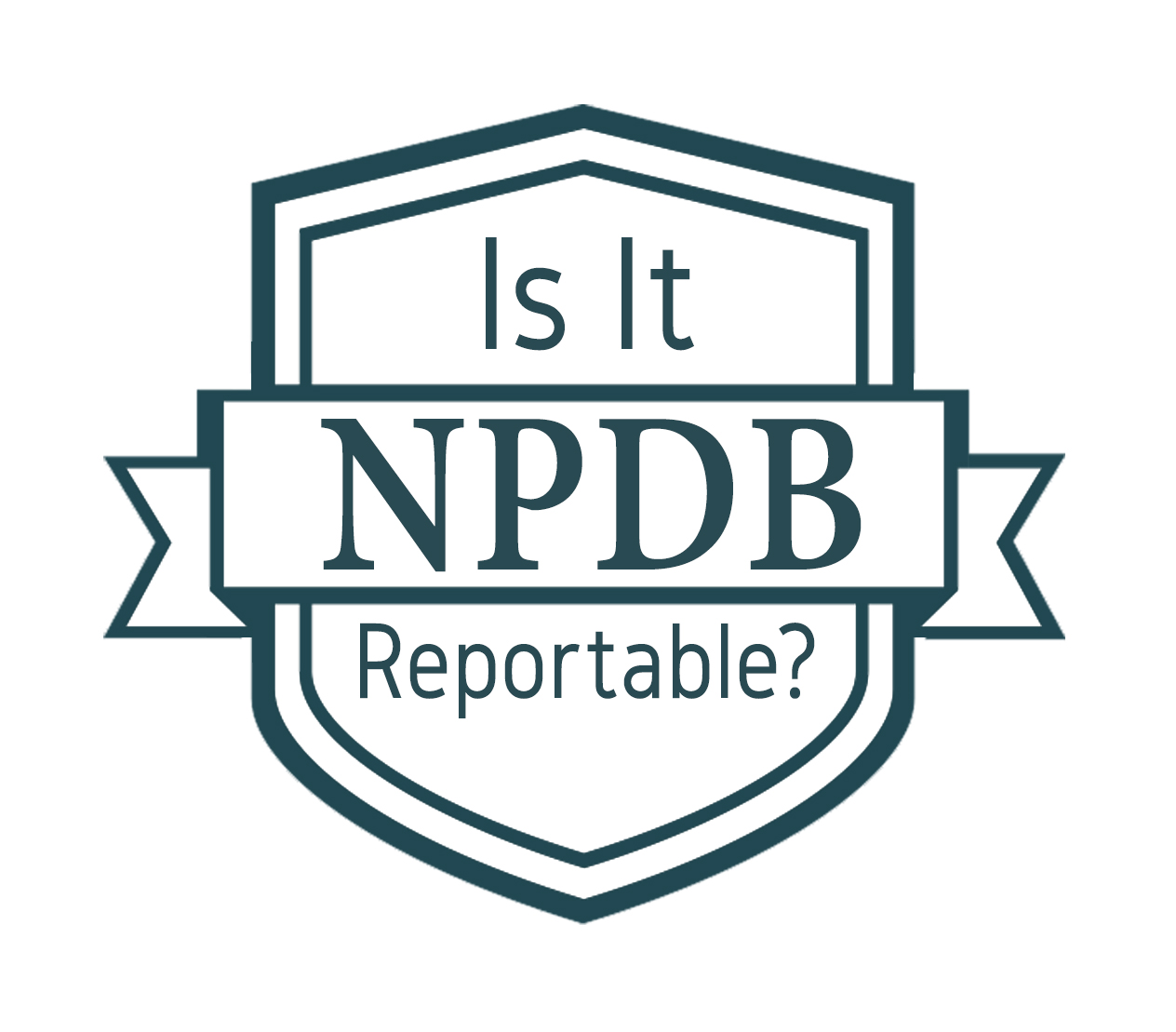NPDB Insights - March 2023

The NPDB applauds all of the ways you promote patient safety in your daily work!

Is It Reportable?
A practitioner is meeting with the state's licensing or certification authority to discuss options for entering into an impaired practitioner program. The practitioner receives a recommendation to enter into the program. Should the practitioner's entry into the program be reported to the NPDB by the licensing or certification authority?
If a practitioner voluntarily enters a treatment or rehabilitation program at the direction or suggestion of a licensing or certification authority and 1) no action is taken, or 2) there is no surrender of the license or an agreement not to practice, a report should not be submitted to the NPDB.
If 1) a licensure or certification action is taken (such as a probation, suspension, etc.) or 2) the practitioner surrenders or agrees to refrain from practicing and the practitioner enters a treatment or rehabilitation program as a requirement of the action, the licensing or certification authority must report the action to the NPDB. The fact that the practitioner entered a drug or alcohol treatment program however should remain confidential.

Patient Safety and the NPDB
Did you know the NPDB was created to help protect patient safety? In 1986, Congress passed legislation to create the NPDB. Congress recognized the need to increase oversight and restrict the ability of physicians and dentists to move from state to state without discovery or disclosure of their past performance. In 1990, the NPDB opened as a repository for reports containing information on medical malpractice payments and certain adverse actions. Later legislation expanded these requirements to include all types of health care practitioners, providers, and suppliers.
Today, the NPDB continues to collect, maintain, and disseminate reports on all types of health care workers in an effort to improve and enhance patient safety. These reports are in turn used by authorized health care organizations when making hiring, licensing, credentialing, and privileging decisions.
- The NPDB now contains more than 1.7 million reports.
- In 2022, we received more than 65,000 new reports.
- In 2022, we provided more than 11.6 million query responses.

What is the NPDB?
An infographic that explains how the NPDB works to protect the public.
See the full infographicWe have established many outreach programs to support our mission to improve health quality, protect the public, and reduce health care fraud and abuse in the U.S. One such program is our popular webinars. In addition, our attestation initiative enhances data quality by ensuring that organizations affirm their commitment to comply with reporting requirements.
- We updated our infographics with the latest 2022 data.
- The Public Use Data File and Data Analysis Tool now include data from 2022. We continue to update the PUF and DAT quarterly. Sign up on the PUF or DAT pages to be notified when updates are posted to the website.
- Our NPDB timeline has been updated to include milestones from last year.
See the About Us page for more information on the NPDB.

Did You Know?
You Can Automatically Renew Your Continuous Query Enrollments
Staying informed about your practitioners is easy. Your Data Bank administrator can enable automatic Continuous Query renewals.
Automatic renewals save you time and hassle. You no longer have to sign in to the NPDB and renew single enrollments every time they get close to expiring. It ensures you won’t forget to renew a practitioner's enrollment.
Note: You must cancel a practitioner's enrollment in Continuous Query if they are no longer employed or affiliated with your organization.
Continuous Query keeps you informed about your practitioners, 24 hours a day, 365 days a year, all for the same price as a single One-Time Query. With Continuous Query, you receive email notifications within 24 hours of a report received by the NPDB. Like One-Time Query, Continuous Query meets all requirements for querying the NPDB.
Learn more about how to use automatic renewals.
The latest updates and resources are available at https://www.npdb.hrsa.gov.
Previous editions of NPDB Insights are available in our archive.
 An official website of the United States government.
An official website of the United States government.

